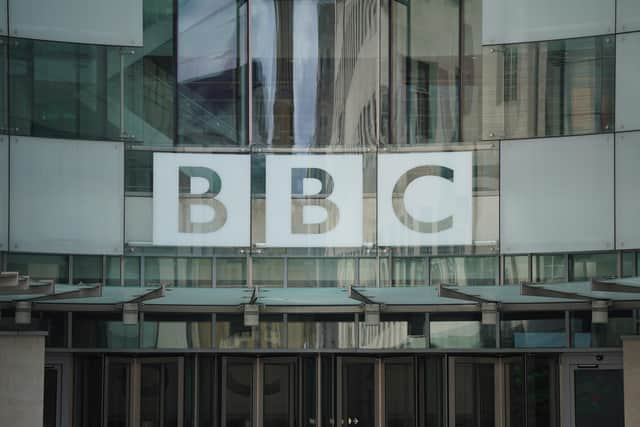How Radio 4 is alienating its audience with attempts to modernise - David Behrens
But I made an exception the other week to record Doctors because an actor friend of ours was in it. It’s been on the air for nearly 25 years but the BBC has just shut it down as summarily as if it were an NHS practice. Having finally seen it, I can understand why.
If you’re not familiar with Doctors, it’s a daily soap opera about the interminable lives of medics and their families in the Midlands. It was originally commissioned for 41 episodes but proved such a panacea for viewers and schedulers alike that 4,400 more half-hours have now rolled off the production line.
Advertisement
Hide AdAdvertisement
Hide AdGiven the epic production values of prime-time TV drama these days, Doctors is a throwback. It’s even more of an antique than the ones that go under the hammer in all the auction programmes that surround it. It’s like watching Crossroads 60 years ago but in colour and without the wobbly sets.


Everything else about the episode I saw was shaky, though. The casting was so poor I couldn’t tell whether the man and woman at the centre of the story were supposed to be a couple or a mother and son. And the plot had more loose ends than an old jumper after the dog’s been at it.
Besides, there are a hundred other medical shows on daytime TV. As a matter of fact, there are more actors playing doctors these days than there are actual doctors. The only difference is that you know in advance when you can see them.
So I’m not surprised it’s been struck off the schedule. But as when any long-running show is given the chop, there has been a fuss. One of the writers blamed the freeze on the licence fee and said its demise would deprive up-and-coming creatives of a first step on the ladder.
Advertisement
Hide AdAdvertisement
Hide AdI can sympathise with that. Over the years Doctors has welcomed the likes of Emilia Clarke, Eddie Redmayne and Sheridan Smith through its rehearsal room doors, not to mention dozens of writers, directors and script doctors. But nothing in broadcasting lasts forever; times change and producers must follow the audience.
Except, that is, if you’re running Radio 4. If Doctors seemed archaic, the BBC’s flagship audio service is positively Reithian. Its drama output remains rooted in Ambridge, a village so bucolic that the NHS hasn’t reached it yet, and I wouldn’t be surprised if the newsreaders were still wearing dinner jackets to announce the budget on Wednesday.
Yet this outpost of a little Britain that otherwise disappeared with pierrots and picnics stands accused of woke-ism – promoting liberal ideology to signal its sensitivity to social injustice. It was the Channel 4 broadcaster Michael Crick who made the assertion and this week Radio 4’s controller struck back.
Far from virtue signalling, said Mohit Bakaya, the station was a mirror to what was going on in Britain.
Advertisement
Hide AdAdvertisement
Hide AdWhich part of Britain did he have in mind, I wonder? Because from my little corner of Yorkshire, Radio 4 seems about as relevant to daily life as a government levelling-up policy. That, though, is what its listeners like about it.
“If you don’t want change in Britain... Radio 4 can be a rude awakening,” Bakaya said in an interview this week. The residents of Ambridge must be apoplectic, then.
His problem is that Radio 4’s audience is deserting him. Last May the network posted its lowest ratings in 16 years, having shed 1.2m listeners in the previous 12 months. The listenership for the Today programme was its worst since 1999.
The station’s attempt to modernise its output was widely blamed for the malaise. There wasn’t the outcry of 18 years ago when it dropped its early morning medley of patriotic songs to make way for a news bulletin, but the discontent was plain. You can’t make people listen to what they don’t want to hear.
Advertisement
Hide AdAdvertisement
Hide AdIn alienating its most loyal audience – intractable might be a better word – the BBC is losing sight of what it’s got, for Radio 4 is the one part of its output no-one thinks should be taken away. Licence fee or no licence fee, it’s as much a part of the national landscape as the White Cliffs of Dover.
And while it’s true that most of us listen to it seldom if at all, it’s the only station that people who like it can’t find anywhere else. There is no commercial equivalent. So while daytime TV soaps run out of lather, Radio 4 keeps bubbling away – so long as no-one upsets the mixture.
That’s an important caveat. It would, after all, be ironic if all its virtue signalling made it victim to that other manifestation of wokeism – cancel culture.
Comment Guidelines
National World encourages reader discussion on our stories. User feedback, insights and back-and-forth exchanges add a rich layer of context to reporting. Please review our Community Guidelines before commenting.